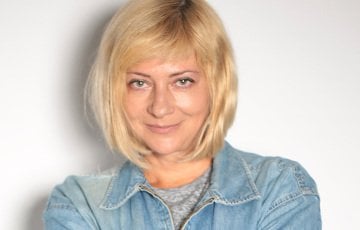Belarus resigned to EU sanctions after Ashton meeting
93- EUobserver
- 13.01.2011, 12:49
Belarus appears resigned to the prospect of fresh EU sanctions.
But its foreign minister, Sergei Martynov, has defended Aleksander Lukashenko as being "not that stupid" as to deliberately destroy relations with the Union.
Speaking to EUobserver in Brussels on Wednesday (12 January) after a meeting with EU foreign relations chief Catherine Ashton, Mr Martynov said: "The government worked hard and wide to seek a rapprochement with the EU ... and the rapprochement we achieved before the elections was a costly one - why should the government simply throw that away? There was no need to do that. It would have been simply stupid on the part of the government and we are not that stupid, sorry."
The minister appeared resigned to some kind of punitive reaction following the violent crackdown on opposition on 19 December. But he urged the EU to keep the door open to a future reconciliation.
"We hope the decision of the EU will not be kind of irrevocable or irreversible, not to drive the situation into a corner," he said. "The events of the night of 19 December will of course have an impact. But this was not an impact sought by the government."
The 57-year-old career diplomat, a fluent English speaker and a former Belarusian ambassador to the Union, is known by his EU counterparts as a "cold and cautious" man who delivers lines prepared in Minsk and then goes home.
"In meetings outside of their government buildings, other Belarusian officials talk more freely. They are relaxed and warm, but he is not like that," one EU diplomatic source said.
The Martynov line in Brussels was: violence on 19 December was instigated by the crowds; opposition candidate Vladimir Neklyayev was injured in a brawl not beaten up by masked men; President Lukashenko does not have the power to free detainees ahead of an EU foreign ministers' decision on sanctions on 31 January.
"You can believe it or not, but this is so: President Lukashenko does not make phone calls of this kind to law enforcement agencies," he said. Asked if he had evidence that police beatings were justified and proportionate, as Belarus maintains, he said the EU will have to take his word for it: "I am not a legal expert and I am not an investigating officer. I am not carrying evidence with me."
Apart from Mr Martynov's flying visits to Brussels, Belarusian officials are also using back channels in EU capitals to say that Russia may have had a hand in the 19 December confrontation in an attempt to harm Belarus-EU relations.
For her part, Ms Ashton on Wednesday told media the EU is "looking into appropriate measures" to take against Minsk. EU parliament President Jerzy Buzek, a Pole, who met with relatives of Belarus political detainees in Brussels the same day, went further, saying: "All European institutions should rethink their relations with Belarus."
EUobserver understands that Poland has already drafted a list of 96 people, including Mr Lukashenko and pro-Lukashenko "propagandists," which it wants the Union to put on a new travel ban list. The ban is to extend to Switzerland, a member of the EU's passport-free Schengen area, where the Belarusian leader went for a ski trip in 2009, according to Mr Martynov, or to have treatment for prostate problems, according to a senior EU diplomat who asked to remain anonymous.
A Belarusian wishlist of EU-sponsored infrastructure projects - such as a new Vilnius-Minsk train, a Klaipeda-Minsk-Moscow highway and a liquified gas terminal - is also to go in the bin.
Meanwhile, Lithuania is lobbying EU leaders to open new channels for ordinary Belarusians to visit the Union to create more pressure for reform back home.
Lithuanian President Dalia Grybauskaite in a letter to EU commission chief Jose Manuel Barroso and EU Council head, Herman Van Rompuy, dated 6 January and seen by this website, said: "I am ... addressing you to search for measures that would ease, as soon as possible, the movement of the people of Belarus in the Schengen area." She added: "It is only through such means that the citizens of Belarus, themselves, will be able to realise the benefits of democratic government."
The two EU men have stayed quiet on the Belarus events for now.









